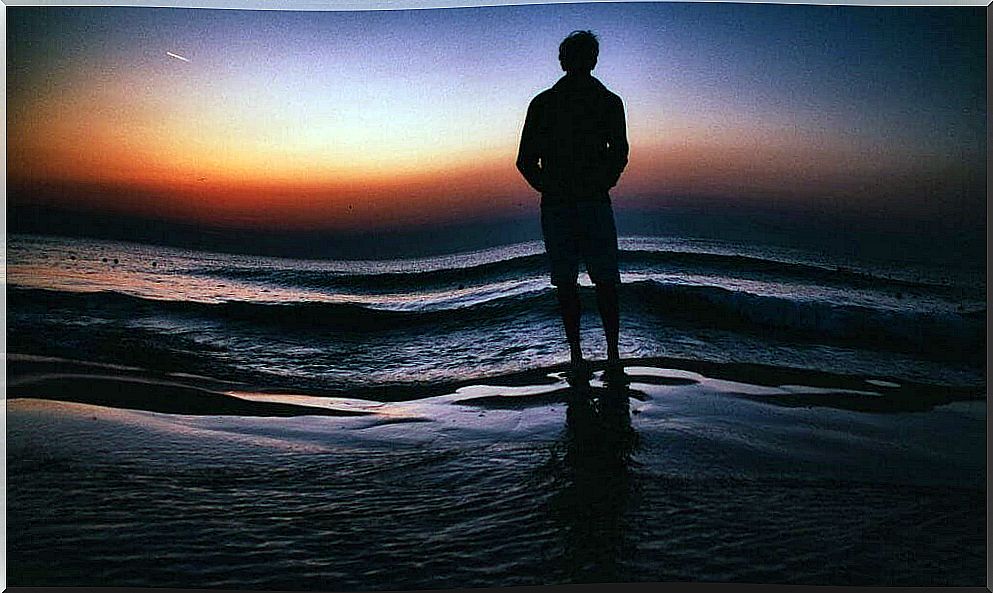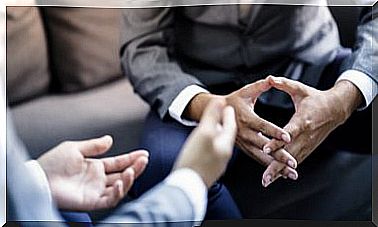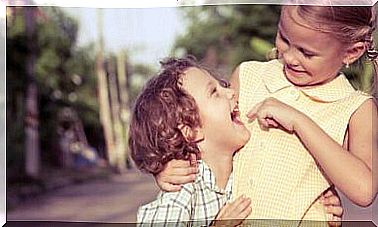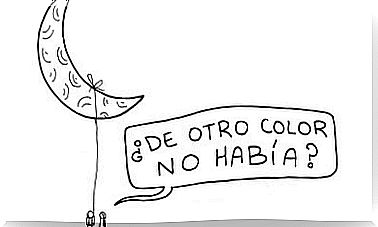Why Do I Feel Lonely?

“I feel alone . ” How many times have we said this to ourselves in our lives? Surely, on more than one occasion, because this statement with the flavor of regret can arise at any time in our childhood, adolescence or maturity. Now, feeling lonely from time to time is normal, but experiencing this feeling for months or years is not so much anymore.
Likewise, there is a fact that at least is striking. According to UN data, we are now close to 7.5 billion people in the world, we are more connected than ever thanks to new technologies, and yet we feel more alone than ever. Loneliness hurts us like it had never happened before.
This reality is not suffered only on an emotional level through sadness, despair or anguish. Loneliness has its serious impact on health, already rising as a true epidemic with high costs. Thus, we could say that it is time to make one aspect clear: loneliness kills and it does so in many different ways.
Studies, such as the one carried out in the department of psychology at the University of Chicago, remind us that this dimension increases the risk of premature death. How? Through heart attacks, obesity, addictions and sadly also suicides. Feeling alone is breaking us little by little … until the most absolute helplessness arrives.
The human being needs a quality social connection, where the feeling of security prevails, of trust, of that constant stimulus where affection, reciprocity and support flow. The absence of this vital right can be devastating.

Why do I feel alone?
The journal Social Psychiatry and Psychiatric Epidemiology introduces a decisive aspect to the subject of loneliness. One that we should all reflect on. Until not long ago, we understood this term in a one-dimensional way, that is, a person feels lonely when they are isolated, when they do not have a social network to lean on. However, taking this approach makes us fall into a mistake.
To begin with, loneliness is not always synonymous with isolation. Being alone is not the same as feeling alone; In other words, today we have a large number of people who have a partner, family and friends and yet experience a deep and devastating loneliness.
What is failing then? Why do I feel lonely if I sometimes have a wide network of figures in my close environment?
Let’s see below those reasons that feed, configure and explain this complex feeling today.
Personal stagnation
There are moments in our life cycle in which we are literally stranded. Nothing advances, nothing that surrounds us is significant and what is worse, the horizon does not shine with the flash of illusion or motivation.
In the midst of that stagnation, that choking routine, it is common for the mind to fall into a state of introspection and continuous reflection where it is common for the feeling of loneliness to germinate.
When life ceases to have meaning, one begins to create a scab around it. It is as if, gradually, all relationships lose value and significance.
I have family and friends, but the link is not significant
One of the reasons I feel lonely is because the people around me are not accessible. What do we mean when we talk about “accessibility”?
- I don’t have confidence in my family and I don’t feel supported by them either.
- The friends I have only serve me for dinner or partying. I cannot share my concerns with them, the bond with them is superficial.
- I do not have anyone specific with whom to express myself, share hobbies, tastes, confidences …
Emotional loneliness is one of the most common today. More than social loneliness, that is, one in which a person does not have a close support network.

I give everything for others and I feel alone
This fact is very common in caregivers or in those people who are used to carrying a large number of responsibilities on themselves. When you are aware of others 24 hours a day, there comes a time when your own needs take a back seat.
This fact generates that, sooner or later, the feeling of loneliness arises. The caregiver perceives that he is being left aside, that his environment only sees him as someone who is there only to give, but not to receive.
An adversity not overcome
A loss, an emotional breakdown, the weight of a traumatic childhood… There are events for which no one is prepared, painful events that we cannot always overcome and that leave weight, deep marks and internal cracks that are difficult to repair. Thus, the fact that they have not yet faced that adversity often makes them experience a feeling of constant and anguished loneliness.
Affective relationships do not last long, every bond created is unstable, no friendship or partner seems to cover all the needs … Those wounds from the past are an obstacle to creating and maintaining a stable and secure network of people that we can count on from day to day. day.
When loneliness turns into abuse
There is a type of loneliness that deserves our attention and it is that related to the elderly. Today, this reality is a true epidemic, a social alarm that requires awareness and strategies. In these cases, we have a large number of older adults (mostly women) who live in a situation of isolation and non-chosen loneliness.
Sometimes they have relatives, neighbors and social services who are interested in their situation. However, none of this seems sufficient, valid or meaningful to these people. Because the day has many hours in a house where only silence lives. Therefore, we are facing situations that leave a dent, that accelerate cognitive deterioration and diseases already present in the elderly.
In this context, it is necessary to establish other more active mechanisms to deal with the isolation of the elderly. Our society is moving towards a society where life expectancy is increasing and, therefore, new intervention and care strategies must be generated.
To conclude, loneliness not chosen and felt as painful is one of the greatest enemies of our present time. Something like this requires not only greater sensitivity, but also requires concrete emergency actions. Loneliness is synonymous with social exclusion and this can appear at any age, having, as we already know, serious consequences.
Let’s act, be more sensitive, ask for help if we need it …









